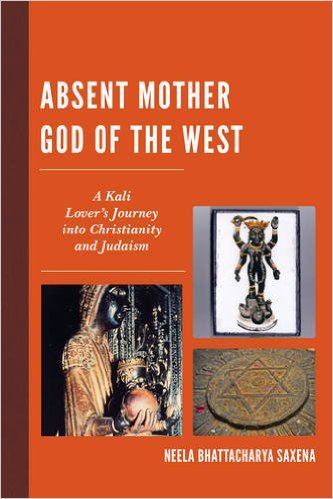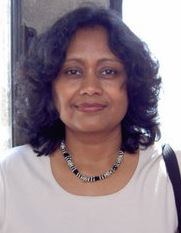Absent Mother God of the West (Excerpt)
May 8, 2016
 The Garden of Light highly recommends Absent Mother God of the West: A Kali Lover's Journey into Christianity and Judaism, by Neela Bhattacharya Saxena, for its eye-opening glimpse into the western concept of God. The book is available at Amazon.com. The passage below gives much food for thought:
The Garden of Light highly recommends Absent Mother God of the West: A Kali Lover's Journey into Christianity and Judaism, by Neela Bhattacharya Saxena, for its eye-opening glimpse into the western concept of God. The book is available at Amazon.com. The passage below gives much food for thought: Most followers of the biblical tradition do not have in their consciousness any memory of the Mother God; after all, no one I had talked to could even imagine her or his “spirit” God in female form. The biblical God was decidedly male. It is strange that this imageless divinity has such a clear male “image.” In spite of the prime commandment against graven images, images are formed in the mind as soon as we enter language; in addition, almost always genders are implicated even within apparently neutral ideas. I figured that even the atheists and secularists were vigorously denying the existence of a biblical Father God. Since there was no trace of the Mother God in their consciousness, they could not deny Her.
Most followers of the biblical tradition do not have in their consciousness any memory of the Mother God; after all, no one I had talked to could even imagine her or his “spirit” God in female form. The biblical God was decidedly male. It is strange that this imageless divinity has such a clear male “image.” In spite of the prime commandment against graven images, images are formed in the mind as soon as we enter language; in addition, almost always genders are implicated even within apparently neutral ideas. I figured that even the atheists and secularists were vigorously denying the existence of a biblical Father God. Since there was no trace of the Mother God in their consciousness, they could not deny Her.My Mother God neither exists nor does not exist; she permeates everything and makes the material world pulsate with her luminosity. She invites me into a sort of “endarkment” and frees me from fears of life and death. Her dance of duality and multiple manifestations lead to the nondual recognition that “Sa Ham–I am She” (Sherma). I ached with longing to name and [...] to carve the “western” Mother. I began searching texts, places, virtual and real, and my inquisitive soul wanted to know how She vanished, and what happened to Her visible presence. However, I could not have dreamt the adventures that awaited me, and the revelations that would unfold.
Saxena, Neela Bhattacharya, Absent Mother God of the West: A Kali Lover's Journey into Christianity and Judaism – Introduction, p. xiii
Lexington Books, 2016.
Sherma, Rita DasGupta, “’Sa Ham–I am She’: Woman as Goddess.” Is the Goddess a Feminist?: The Politics of South Asian Goddesses. Eds. Alf Hiltebeitel and Kathleen Erndl. New York, NY UP, 2000.


